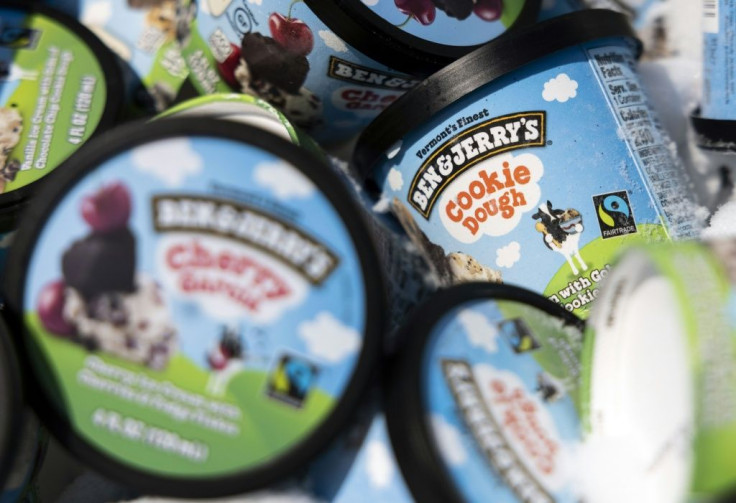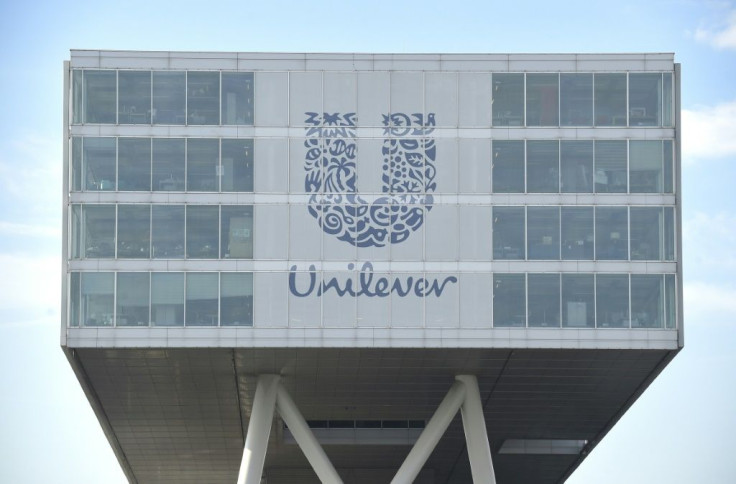Ben & Jerry's Israel Boycott: Parent Unilever Takes Heat As Ice Cream Maker Faces Backlash

KEY POINTS
- Israel’s prime minister called Unilever CEO Alan Jope to warn him
- Israeli leaders have called on a widespread boycott of Ben & Jerry’s
- U.S. states have also been urged to sanction the ice cream company
- U.S. states could drop Unilever from large pension funds if laws violated: Report
- Unilever has clashed with the ice cream maker’s board
Unilever PLC has been dragged into its ice cream brand Ben & Jerry’s decision to stop selling products in Israel-occupied territories.
Israeli Prime Minister Naftali Bennett warned Unilever Chief Executive Alan Jope of “severe consequences” of its subsidiary’s move, the Wall Street Journal reported.
Bennett’s office said the prime minister “made it clear” how Unilever “has taken a clearly anti-Israel step” in Ben & Jerry’s move of not renewing its license agreement with the Israeli partner after late 2022.
Prime Minister @naftalibennett warned @Unilever, the owners of @benandjerrys, that #Israel would take action against the ice cream company's decision to halt sales in the West Bank and east Jerusalem.https://t.co/nFOtCl1Wqd
— Arsen Ostrovsky (@Ostrov_A) July 20, 2021
Bennett also told Jope that the country will “act aggressively” against any actions directed at the Israeli people. Israel’s ambassador to the United States, Gilad Erdan, said he has sent a letter to urge governors to sanction the ice cream maker. Erdan’s letter was sent to 35 governors of states that have passed laws in multiple U.S. states that ban boycotts of Israel.
Israeli Foreign Minister Yair Lapid has also leaned on the U.S. to take action. The Jewish Telegraphic Agency reported that Lapid called for domestic action against the ice cream company under state laws that block government cooperation with companies exhibiting anti-Israel measures.
Eugene Kontorovich, a professor at George Mason University’s Scalia Law School, told CNBC that Unileveer could be vulnerable to laws in multiple U.S. states that ban boycott of Israel. Violations could make "both Ben & Jerry’s and Unilever ineligible for state contracts or prompt states to drop Unilever shares from large pension funds," the report said.
Israeli leaders who have commented against Ben & Jerry’s and Unilever include lawmaker Amichai Chikli and cabinet minister Orna Barbivay.
Several Jewish groups in the United States have also expressed disappointment over the move, while others said it was the right choice.
Ben & Jerry's said selling its products in "Occupied Palestinian Territory" is "inconsistent with our values." The ice cream maker may still operate in Israel through different arrangements but board approval is necessary to carry out such a plan.
Since news of the increasing Israeli backlash emerged, tensions have been high between Unilever and the independent board of Ben & Jerry’s, Reuters reported.
Board chair Anuradha Mittal said the board wanted to release a separate statement from that of its parent company regarding the end of product sales.
Ben & Jerry’s will end sales of our ice cream in the Occupied Palestinian Territory. Read our full statement: https://t.co/2mGWYGN4GA pic.twitter.com/kFeu7aXOf3
— Ben & Jerry's (@benandjerrys) July 19, 2021
Mittal said Unilever’s decision to release a statement without the board’s approval violated legal acquisition agreements between the subsidiary and the parent company. Speaking with NBC News, Mittal said she is “saddened by the deceit of it.”
Unilever said in a statement following Ben & Jerry’s announcement that it will retain presence in Israel.
Meanwhile, former ambassador to the U.S., Michael Oren, said there won’t be immediate consequences for Israel after Ben & Jerry’s pull-out. However, Oren noted that the latest development could further drive the “steady erosion of Israel’s legitimacy.”

© Copyright IBTimes 2024. All rights reserved.






















